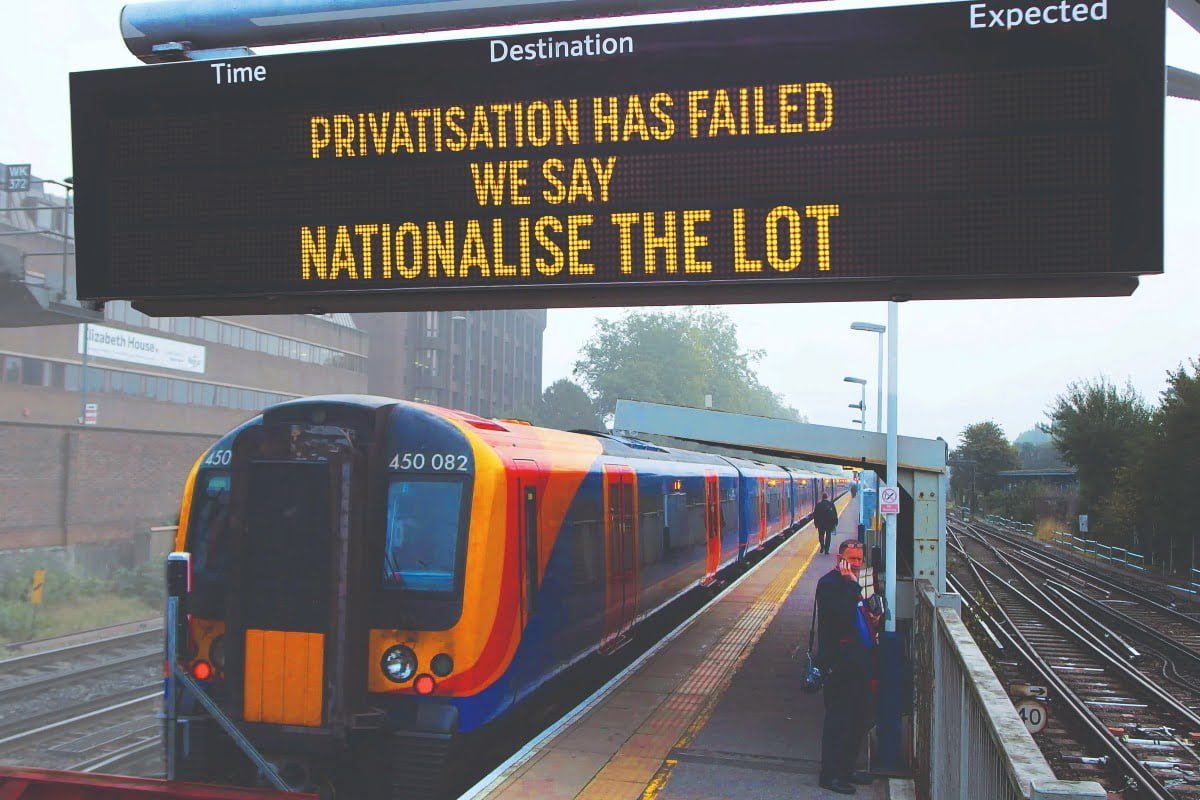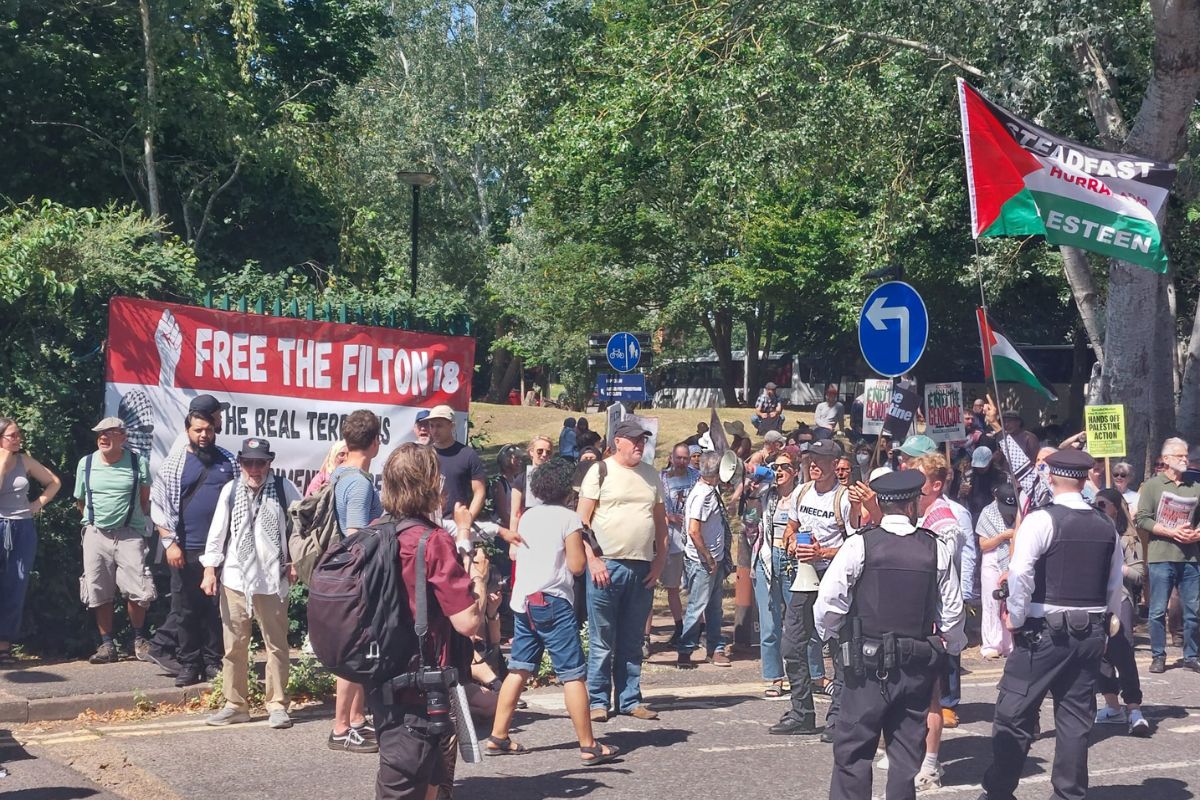Over 87% of British rail trains are owned by just three companies – the ROSCOs – which operate as a cartel monopoly. Profits have risen in the last few years whilst costs are passed on to the state and passengers. We need workers’ ownership.
Over 87% of the rolling stock (i.e. trains) in the British rail system is now owned by just three companies – commonly called the ROSCOs. These rolling stock companies were set up by the Tories to takeover the previously public-owned rolling stock after privatisation under the Major government. Effectively they operate as a cartel monopoly.
The RMT has targeted the performance of the ROSCO racket, as they call it, to demonstrate the clear failings of rail privatisation and why the system must be returned to public ownership.
Huge profits
 The ROSCOs operate by leasing rolling stock to the various rail companies – these are the trains you travel on everyday. However, because this is a lease arrangement, the ROSCOs benefit by keeping the existing rolling stock in use for as long as possible. Bringing in new trains is an expensive business, keeping the old ones in use and therefore generating additional income is not. As a result the average lifetime of a train has risen from 16 years before privatisation to 20 years today.
The ROSCOs operate by leasing rolling stock to the various rail companies – these are the trains you travel on everyday. However, because this is a lease arrangement, the ROSCOs benefit by keeping the existing rolling stock in use for as long as possible. Bringing in new trains is an expensive business, keeping the old ones in use and therefore generating additional income is not. As a result the average lifetime of a train has risen from 16 years before privatisation to 20 years today.
Profits for the ROSCOs have also risen – from £800 million in 2012 to £1 billion in 2017. Meanwhile there is no evidence of any cost savings being passed on. In fact the leasing costs for the rolling stock have increased by 24% in the five years from 2013 to 2018. Needless to say these costs are always passed on to the state and the rail passenger.
The RMT has also raised serious concerns about how the ROSCOs operate their finances. During a six-year period (2012-18) over £1.2 billion was passed on by the ROSCOs to shareholders as dividends (with Angel trains paying 66% of its profits out as dividends in 2018 for example) or as payments to parent companies.
These payments reflect complex financial arrangements which often seem to involve massive “loans” being made between companies, all with huge charges and interest fees incurred. So, for example, Eversholt incurred £328 million in interest payments to its parent company during this same period. The RMT has rightly suggested that the effect of all this has been to drastically reduce the ROSCOs tax bill. They also note that these companies seem to like being based in places like Luxemburg and, naturally, the Cayman Islands, where they can operate hidden from view.
Workers’ control
The only people not to benefit from all this are the workers and rail travellers. We are stuck on old outdated trains that constantly break down, and see more and more of our money being syphoned off to the ROSCO scammers.
The only way to deal with this is to renationalise the lot and bring these firms and all of the rail system back under public ownership. These vultures should not get one penny in compensation, they have ripped us off long enough. Rather than let the current cost-cutting management continue, the rail network should be run under workers’ control and management as part of a socialist plan of production.
For more information go to the RMT website and download a pdf of “The ROSCO Racket”.






